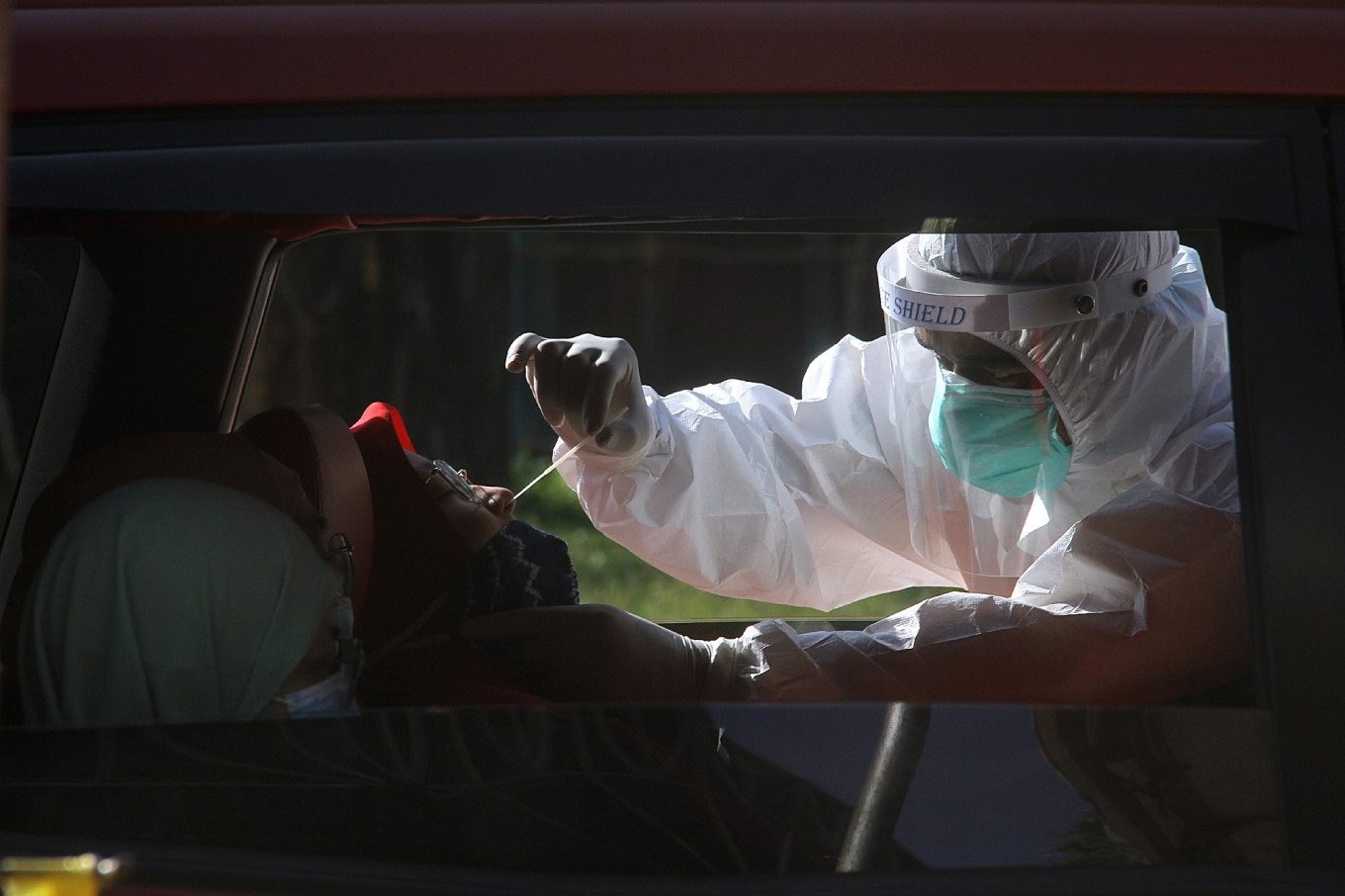Popular Reads
Top Results
Can't find what you're looking for?
View all search resultsPopular Reads
Top Results
Can't find what you're looking for?
View all search resultsBanjarmasin, Surabaya record highest COVID-19 mortality rates
Banjarmasin in South Kalimantan and Surabaya in East Java have recorded the highest mortality rates while COVID-19 case numbers keep rising across the archipelago.
Change text size
Gift Premium Articles
to Anyone
B
anjarmasin in South Kalimantan and Surabaya in East Java have recorded the highest mortality rates while COVID-19 case numbers keep rising across the archipelago.
Banjarmasin’s crude death rate stands at 14.3 per 100,000 people, while that of Surabaya stands at 12.7, according to the latest data presented on Sunday by the COVID-19 national task force.
The two cities have dominated the chart since the previous count on June 7, when Surabaya was the city with the highest crude mortality rate at 9.8 deaths, followed by Banjarmasin at 9.4.
Sunday’s data also showed that Central Jakarta replaced North Sulawesi’s Manado in the third place, with a rate of 11.8.
“We see death [rates] based on not only the number of deaths but also the number of positive cases and the population in a region,” Dewi Nur Aisyah, an epidemiologist on the task force’s team of experts, said during a press briefing on Wednesday.
Central Jakarta has topped the crude mortality rates in the capital due to its lower population even though East Jakarta has dominated both the number of cases and the number of deaths as of Wednesday.
Despite its large population, East Java, considered the new epicenter of the outbreak, has stood among regions with the highest crude mortality rates at the provincial level, besides its towering case fatality rate (CFR). The province also recorded the highest number of deaths in the country.
In over a month, South Kalimantan and East Java have been among the hardest-hit provinces, with the former recording 2,775 cases and 168 deaths and the later 10,298 cases and 750 deaths as of Wednesday, according to the Health Ministry.
All 13 regencies and municipalities in South Kalimantan have been designated “red zones”, but only two regencies and two cities, including Banjarmasin, have applied large-scale social restrictions (PSBB) that were lifted earlier this month.
Greater Surabaya, which consists of Surabaya and its satellite regencies of Sidoarjo and Gresik, has also lifted the PSBB measures despite a spike in confirmed cases.
Mayor Tri Rismaharini has dismissed calls from experts for the partial lockdown to be re-imposed and claimed that the second-biggest city in the country showed a downward trend in COVID-19 cases.
The mortality rates, however, might underrepresent the actual severity of the outbreak, given the lack of testing capacity that has led to many unconfirmed deaths, which the government has also refused to include in the official tally.
Over the past two weeks, the government has increased its testing capacity, reaching the target of 20,000 specimens and 10,000 people tested daily several times, although the performance has been unsteady.
Along with the increasing testing capacity, the national test positivity rate has escalated, at 14 percent over the first two weeks of June, up from 11 percent in the last week of May. It is far from the provision of below 5 percent to impose new normal measures.
“The speed of transmission is unchanged in Indonesia. We can’t say that conditions are worsening. The conditions are unchanged, only now [we have] better testing capacity to prevent infection of the vulnerable,” Dewi said.
The chief of the national COVID-19 task force expert staff, Wiku Adisasmito, praised the “cross-sectoral collaboration” coordinated by the task force, saying it had contributed to the country’s ability to counter the pandemic, including its increased testing capacity.
“All hospital data are now connected to surveillance and laboratory data automatically,” he said, reporting the dramatic increase of the number of hospitals from 250 to 1,687 in the past three months.
Wiku explained almost 60 percent of regencies and municipalities in Indonesia were now at low or zero risks and allowed to reopen the economy.
President Joko “Jokowi” Widodo appreciated local leaders and regional task forces that managed to contain the virus and said he was optimistic to see improving data, but he also asked for vigilance.
“With an integrated information system, we have scientific data, and every policy we take should be based on those. Always ask for advice from the scientists,” the President said.










